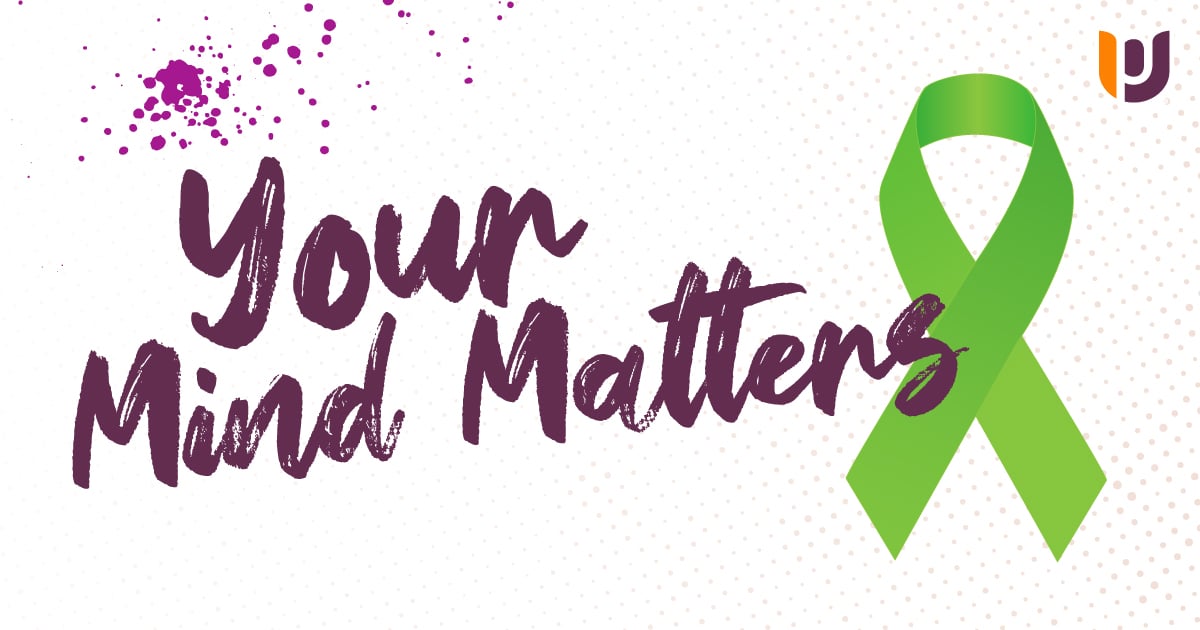In recognition of Mental Health Awareness Month, we turned over our blog to the team from the Post University Counseling Center.
We are living in unprecedented times. We are experiencing social isolation, anxiety around health, schoolwork and perhaps economic problems. All of these situations may link to mental health concerns. We care about your mental health and wellness. Taking care of your mental health is vitally important. Here are some tips and resources to help you do so.
Wellness Resources for the Post Community
The Counseling Center’s top priority is to support the well-being and success of the Post community. One exciting resource available to all Post students, associates, and alumni is the multi-media, wellness platform, YOU@Post. It is designed to help users prioritize their own happiness and well-being with a customizable experience that includes self-assessments, goal setting tools, and a personalized feed of wellness articles and resources.
Sometimes it is difficult to determine whether or not our concerns warrant the help of trained counselor. If you are unsure if you, or someone you know, should connect with a mental health professional for consultation or treatment, you can take a free online mental health screening. There are twelve different screenings that you can pick from based on your needs. They are anonymous and confidential. After taking the brief questionnaire, you will be given results, recommendations, and resources. These resources and more can be found on the Counseling Center’s webpage.
Student Online Assistance Resource (SOAR)
Continuing to provide every student with the tools and resources needed to succeed, Post University offers the Student Online Assistance Resource (SOAR). Students have 24/7 access to this platform. It provides several important services like counseling, financial resources, legal support, and personal convenience services.
SOAR is accessible through the Student Portal. It complements You@Post, another of the university’s wellness tools.
Small Habits Make a Difference
Incorporating small changes into our daily routines can add up to big results. It is important to take breaks, get enough sleep, and prioritize self-care. Self-care can look different for each person. Some people thrive by taking time to go outside for a walk or hike, while others find yoga and journaling to be highly beneficial in reducing stress and anxiety. Regardless of what type of self-care works for you, incorporating it into your weekly schedule is essential.
Countless research studies have backed the importance of mindfulness and meditation to reduce stress and prevent more serious mental health concerns. Mindfulness includes focusing on our breath, slowing down, and staying in the current moment. There are many types of meditations, such as a body scan, visualization, and progressive muscle relaxation. If you’re interested in learning more, here are examples of all these types of meditations. For more on mindfulness and ways to incorporate it into our daily lives, visit this page by the Mayo Clinic.
As a result of the coronavirus pandemic, many organizations are tailoring guided meditations to the needs of people dealing with the emotions and secondary circumstances associated with COVID-19.
Helping a Friend or Family Member
According to a national survey by the Substance Abuse and Mental Health Services Administration, 47.6 million people, or one in five adults, in the United States experience mental illness each year. The likelihood of someone you know living with symptoms related to mental health concerns is quite high. You can make a difference. Many people are worried about saying the wrong thing to someone who is struggling, when the reality is that we should be less focused on what we are saying and more attentive to how much we are listening. Listening without judgment makes a big difference. It helps the friend or family member feel heard, validated, and important. One of the best ways to let them know you care is by helping them find professional assistance.
You do not need to bear the weight of finding help for your friend or family member on your own. You can always reach out to a trusted teacher, counselor, mentor, or coach. For more information on ways you can help a friend, visit this National Alliance on Mental Illness’ article.
If you feel a friend or family member is in immediate danger of harming themselves or others, you can call the National Suicide Prevention Lifeline at 1-800-273-8255, or text “Home” or “Start” to 741-741.
We hope this reminds you that you are worthy of taking time for yourself and asking for help when you need it. You deserve to be mentally and emotionally healthy. Mental Health Awareness Month is a wonderful time to reflect on ways to help yourself, and those we love, feel more connected, cared for, and content.
